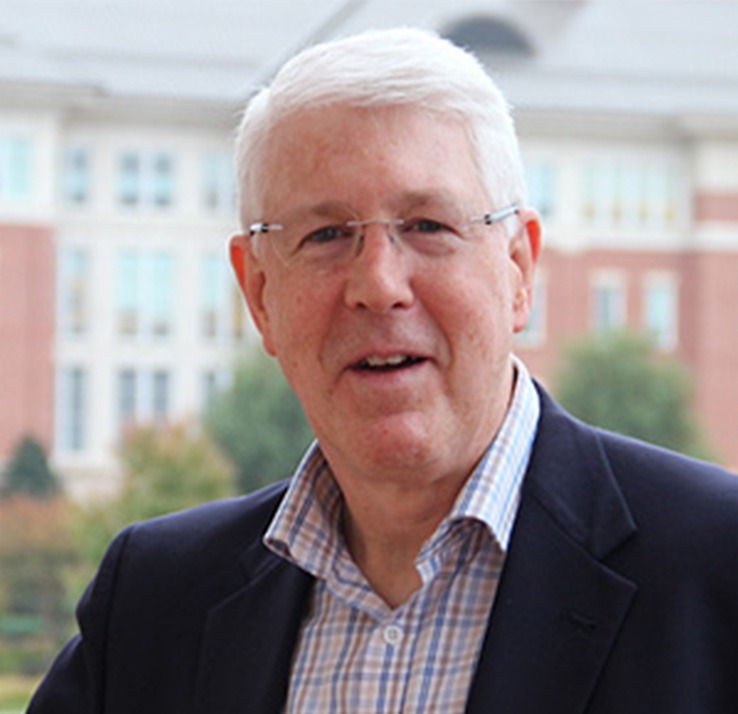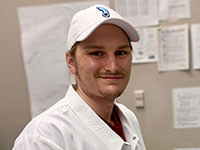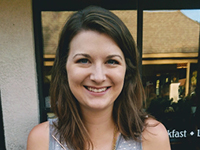hursting@email.unc.edu
704-250-5059
Stephen D. Hursting, PhD, MPH
Professor of Nutrition
Dr. Hursting is a Professor of Nutrition at the UNC Nutrition Research Institute in Kannapolis, NC. He is also Professor in the Department of Nutrition and the Lineberger Comprehensive Cancer Center at the University of North Carolina at Chapel Hill. An international leader in the area of nutrition, obesity, metabolism and cancer, his lab focuses on the molecular and metabolic mechanisms underlying obesity-cancer associations, and the impact of obesity- energy balance modulation (eg, calorie restriction and exercise) or pharmacologic agents on cancer development, progression, and responses to chemotherapy. Primarily using genetically engineered mouse models of breast cancer (recently in parallel with several clinical trials), colon cancer and pancreatic cancer, Dr. Hursting has identified the IGF1/Akt/mTOR and NF-kB signaling pathways as key targets for breaking the obesity-cancer link. His publications establish causal links between obesity, cancer and several systemic factors (including IGF-1, insulin, leptin and IL-6) and components of their downstream signaling pathways (including mTOR and NF-kb).
Prior to joining the UNC faculty in 2014, Dr. Hursting was Professor and Chair of the Department of Nutritional Sciences at the University of Texas (UT) at Austin, the McKean-Love Endowed Chair of Nutritional, Molecular and Cellular Sciences in the UT College of Natural Sciences, and Professor of Molecular Carcinogenesis at the UT-MD Anderson Cancer Center (2005-14). Dr. Hursting earned a BA in biology from Earlham College and a PhD in nutritional biochemistry and an MPH in nutritional epidemiology from the University of North Carolina at Chapel Hill. He also completed postdoctoral training in molecular biology and cancer prevention as a Cancer Prevention Fellow at the National Cancer Institute (NCI).
Show MoreDr. Hursting is a Professor of Nutrition at the UNC Nutrition Research Institute in Kannapolis, NC. He is also Professor in the Department of Nutrition and the Lineberger Comprehensive Cancer Center at the University of North Carolina at Chapel Hill. An international leader in the area of nutrition, obesity, metabolism and cancer, his lab focuses on the molecular and metabolic mechanisms underlying obesity-cancer associations, and the impact of obesity- energy balance modulation (eg, calorie restriction and exercise) or pharmacologic agents on cancer development, progression, and responses to chemotherapy. Primarily using genetically engineered mouse models of breast cancer (recently in parallel with several clinical trials), colon cancer and pancreatic cancer, Dr. Hursting has identified the IGF1/Akt/mTOR and NF-kB signaling pathways as key targets for breaking the obesity-cancer link. His publications establish causal links between obesity, cancer and several systemic factors (including IGF-1, insulin, leptin and IL-6) and components of their downstream signaling pathways (including mTOR and NF-kb).
Show MoreHursting’s Team
In the News
Dr. Hursting Awarded Grant from Breast Cancer Research Foundation
October 28, 2015 • The Breast Cancer Research Foundation seeks “to prevent and cure breast cancer by advancing the world’s most promising research.”Since 1993 BCRF-supported investigators have been deeply involved in every major advance in breast cancer prevention, diagnosis and treatment. In 2015-2016, BCRF is awarding $48.5 million in grants to more than 240 scientists to advance this work. Among those recipients is Stephen Hursting, Ph.D., M.P.H., Professor of Nutrition at the UNC Nutrition Research Institute.
Liver Cancer Report Reveals New Links: Coffee is Protective, Obesity Increases Risk
April 1, 2015 • For the first time, a report from an ongoing systematic review of global research finds that drinking coffee lowers risk for liver cancer, a disease that is increasing in the U.S. and the second leading cause of cancer deaths worldwide.
Today’s report also finds strong evidence linking body fatness to increased risk for liver cancer. This means that liver cancer now officially joins the growing list of cancers caused by overweight and obesity. Sixty-nine percent of U.S. adults are currently overweight or obese, according to the Centers for Disease Control and Prevention.
Series to help laypeople understand science
Saturday, February 14, 2015 • The following has been reprinted from Charlotte Observer, an article by Lisa Thornton. If Dr. Natalia Surzenko told you that choline produces increased hippocampal neurogenesis in Mus musculus, you probably wouldn’t understand. But if she said a nutrient called choline, naturally found in foods such as egg yolks, salmon and cocoa powder has been shown to regenerate brain cells responsible for increased memory in mice, that would be different. At the UNC Nutrition Research Institute in Kannapolis, where Surzenko, a neurobiologist, has her lab, a new series called “Appetite for Life” is intended to create clearer dialogue between researchers and laypeople about discoveries changing the way experts view nutrition.
Diet and Cancer Prevention
Dr. Stephen Hursting, Ph.D., M.P.H.
Publications
2024
2023
2022
Obesity and Breast Cancer Metastasis across Genomic Subtypes
Reversing the Genomic, Epigenetic, and Triple-Negative Breast Cancer-Enhancing Effects of Obesity
Increased Ammonium Toxicity in Response to Exogenous Glutamine in Metastatic Breast Cancer Cells
2021
Metabolic response of triple-negative breast cancer to folate restriction
Psychometrics of the balance beam test in mice
Mechanistic targets and nutritionally relevant strategies to break obesity-breast cancer links
2020
Cell Intrinsic and Systemic Metabolism in Tumor Immunity and Immunotherapy.
Multi-omics analysis reveals adipose-tumor crosstalk in patients with colorectal cancer< Change in visceral fat and adipocytokines in sedentary obese breast cancer survivors after caloric restriction and rapid escalation of high-volume exercise
2019
2018
2017
When less may be more: calorie restriction and response to cancer therapy.
Energy balance and obesity: what are the main drivers?
Metabolic Reprogramming by Folate Restriction Leads to a Less Aggressive Cancer Phenotype.
2016
Loss of p27 Associated with Risk for Endometrial Carcinoma Arising in the Setting of Obesity. < Obesity-Associated Alterations in Inflammation, Epigenetics, and Mammary Tumor Growth Persist in Formerly Obese Mice.




